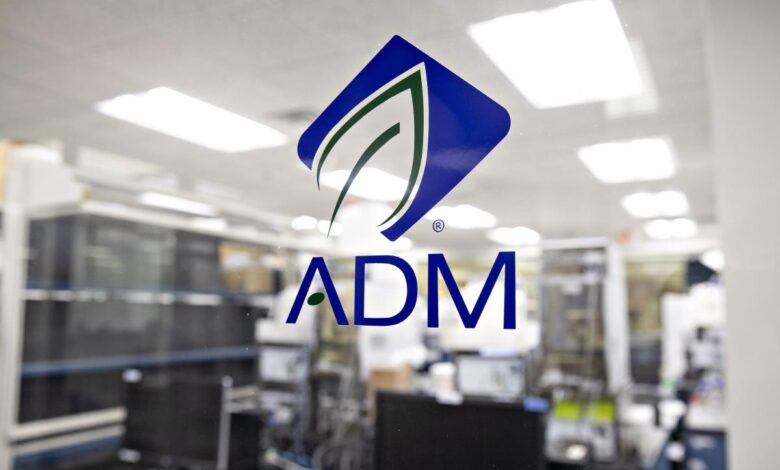
[ad_1]
(Bloomberg) — The division of Archer-Daniels-Midland Co. that’s under investigation for its accounting practices is responsible for less than 10% of the crop giant’s revenue. Yet it has had an outsized influence on recent executive bonuses, records show.
Most Read from Bloomberg
ADM’s board in 2020 and 2021 staked a considerable share of senior executives’ stock award payouts to the profitability growth of its nutrition unit. The company blew past the goals for the first round of awards, helping the executives collect shares worth more than $70 million. Payouts for the second round of awards were set to be determined early this year.
ADM disclosed this past week that it had suspended its chief financial officer and opened a probe of the nutrition unit. The news triggered a selloff in the company’s shares that wiped out almost a quarter of its market value.
The company declined to comment.
Read more: Accounting Probe Centers on Dubious Footnote Investors Watch
ADM’s senior executives, like many peers at large public companies, receive a big part of their compensation in the form of stock awards. Roughly half of these awards, which are granted annually, vest after three years largely depending on how the company performs on a few specific key metrics. The other half vests after three years as long as the person remains on the job.
The portion that’s linked to performance targets is now in focus. For awards like these, boards typically select metrics that reflect the company’s broader financial goals, like adjusted earnings, return on invested capital or stock return relative to rivals. ADM’s board for many years followed this principle.
But in 2020, it removed adjusted earnings before interest, taxes, depreciation and amortization as one of the key metrics for executive stock awards and added something much more specific: growth of average operating profit in the nutrition segment. The three-year average had to exceed 10% for executives to receive their target payout. If the unit’s growth hit 20%, they stood to receive twice as many shares.
“Some of these changes were designed to emphasize our focus to significantly grow the nutrition segment of our business,” the company said in a filing at the time. In the most recent quarterly report, the unit made up about 8% of total company revenue.
For the 2020-2022 period, average growth in the unit was 21.4%. Because the company also exceeded the top threshold for the second key metric — average adjusted return on invested capital across ADM — the company’s seven top executives collectively received shares worth about $72 million in January 2023, filings show.
It’s not clear how much they stand to receive for the awards granted for the subsequent performance period, which also are partly tied to profit growth in the nutrition segment. But filings suggest that executives had the potential to reap payouts of a similar magnitude if targets were exceeded.
Seeing such a large weight on a narrow metric for equity incentives “is highly unusual,” said Kevin Murphy, a finance professor at the University of Southern California’s Marshall School of Business.
For awards set to run from 2022 to 2024, ADM’s board replaced the nutrition unit metric with adjusted earnings per share, saying it is “one of the primary basis on which we set performance expectations for the year” and a widely used measure of corporate performance.
ADM and its rivals in the so-called ABCDs of major crop merchants — a group that also includes Bunge Global SA, Cargill Inc. and Louis Dreyfus Co. — have all been looking for ways to diversify beyond their main businesses. Although Chicago-based ADM is more than 100 years old, it only began to push into nutrition in earnest in 2014 with the $3.1 billion acquisition of Wild Flavors GmbH, a European maker of food flavorings and colors.
Read More: ADM Probe Highlights Struggle to Expand Beyond Crop Trading
A US Securities and Exchange Commission request for information triggered the company’s inquiry into accounting practices at its nutrition business. ADM has released few details since Sunday, when it announced placing Vikram Luthar, then CFO, on administrative leave. It hasn’t said what quarters or years of results might be under review.
The company has a clawback provision, meaning it could choose to recover any payments in the event of misconduct or financial restatements, though that’s often easier said than done.
“In general, it is difficult to recoup already-paid-out awards for executives who have already paid taxes on, and sometimes spent, the awards,” Murphy said.
–With assistance from Rob Du Boff.
(Adds additional details in third to last paragraph)
Most Read from Bloomberg Businessweek
©2024 Bloomberg L.P.
Source link




